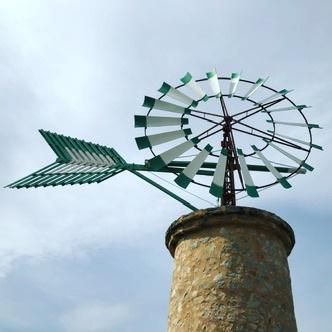What insights does Pollentia offer about the Roman conquest and cultural transformation of the Balearic Islands?
Similar Topics
pollentia
roman conquest
balearic islands
roman urban design
romanization
archaeological remains
cultural transformation
mallorca history
Pollentia, an ancient Roman city located near modern-day Alcúdia on the island of Mallorca, offers valuable insights into the Roman conquest and subsequent cultural transformation of the Balearic Islands. Founded around 123 BCE following Rome’s military campaigns against the native populations, Pollentia stands as a testament to the island’s integration into the Roman Empire. The carefully planned layout of the city, with its grid system of streets, public spaces, and defensive walls, reflects typical Roman urban design and reveals how the Romans sought to impose their organizational principles on newly conquered territories. This city served not only as a military stronghold but also as a center for administration and economic activity, underscoring Rome’s intent to establish lasting control over the islands.
Archaeological remains at Pollentia further illustrate the extent of cultural assimilation and Romanization in the Balearics. The discovery of public buildings such as baths, forums, and temples highlights how Roman social and religious life was introduced and largely adopted by the local population. Artifacts, including pottery, coins, and inscriptions, provide evidence of trade networks connecting the Balearics with broader Mediterranean regions, revealing the integration of the islands into the economic and cultural currents of the Roman world. Moreover, the coexistence of native and Roman elements in daily life—seen in the mixture of local and Roman styles in housing and art—indicates a blending rather than a complete replacement of indigenous culture.
The decline of Pollentia around the 4th century CE also sheds light on the shifting political and social dynamics of the period, as Roman authority waned and other groups, such as the Vandals and later the Byzantines, influenced the islands. Despite this decline, the legacy of Roman urban planning, architecture, and governance persisted, laying the groundwork for the future development of Mallorca and the Balearic Islands. Today, the ruins of Pollentia offer visitors a tangible connection to this transformative period, illustrating how the Roman conquest was not merely a military event but a complex process of cultural integration and change that reshaped the islands’ identity for centuries to come.
Archaeological remains at Pollentia further illustrate the extent of cultural assimilation and Romanization in the Balearics. The discovery of public buildings such as baths, forums, and temples highlights how Roman social and religious life was introduced and largely adopted by the local population. Artifacts, including pottery, coins, and inscriptions, provide evidence of trade networks connecting the Balearics with broader Mediterranean regions, revealing the integration of the islands into the economic and cultural currents of the Roman world. Moreover, the coexistence of native and Roman elements in daily life—seen in the mixture of local and Roman styles in housing and art—indicates a blending rather than a complete replacement of indigenous culture.
The decline of Pollentia around the 4th century CE also sheds light on the shifting political and social dynamics of the period, as Roman authority waned and other groups, such as the Vandals and later the Byzantines, influenced the islands. Despite this decline, the legacy of Roman urban planning, architecture, and governance persisted, laying the groundwork for the future development of Mallorca and the Balearic Islands. Today, the ruins of Pollentia offer visitors a tangible connection to this transformative period, illustrating how the Roman conquest was not merely a military event but a complex process of cultural integration and change that reshaped the islands’ identity for centuries to come.
🧩 Related Questions
Related Question
In what ways does the rainwater harvesting system in Mallorca help mitigate the effects of drought during summer?
Related Question
How do Mallorca’s protected natural areas contribute to the preservation of endangered tree species on the island?
Related Question
How do tourists typically engage with the olive oil culture in Mallorca?
